69-YO Kerala Farmer Earns Fame Growing Rare Wild Fruit Loved by Tribals
In Kerala’s Idukki, Baby Abraham has become famous for his farm of 250 Mooti Pazham trees, a rare local fruit consumed widely by the tribals of Western Ghats.
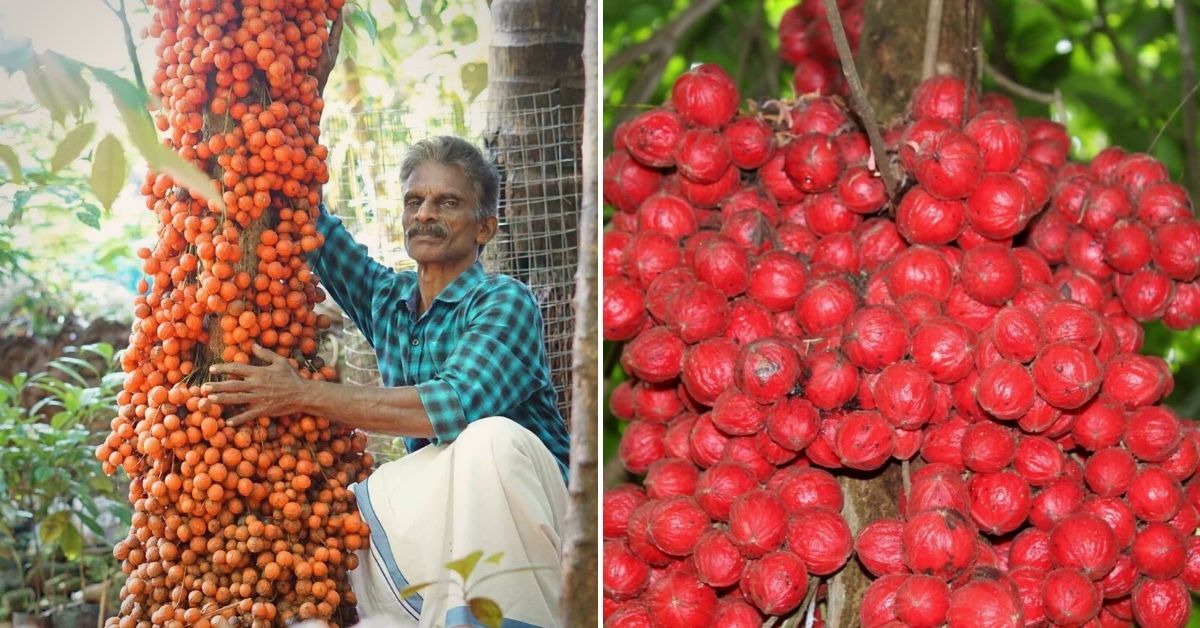
“Red, round and a feast for the eyes.”
Such is the description of ‘Mooti Pazham’, a rare and wild fruit that grew in abundance in the forests, Baby Abraham from Thodupuzha in the Idukki, Kerala, recalls.
The fruit from the tree Baccourea courtallensis, widely consumed by tribal communities, fascinated him and his elder brother while growing up near the forests of Idukki.
“It was always a beautiful sight to watch the tree that bore fruits at the bottom of its trunk. We couldn’t resist and plucked and relished them whenever we got a chance. It wasn’t seen anywhere else except in the forests. We were also not aware of its nutritious value back then,” says Baby Abraham in conversation with The Better India.
These fruits, with their alluring colours and sweet-sour taste, are also eaten by animals. He adds, “In the forests, these fruits are never left on the tree if animals like elephants, squirrels, or monkeys are around. But when the forests were razed for development or settlements, the trees disappeared and were nowhere to be found.”
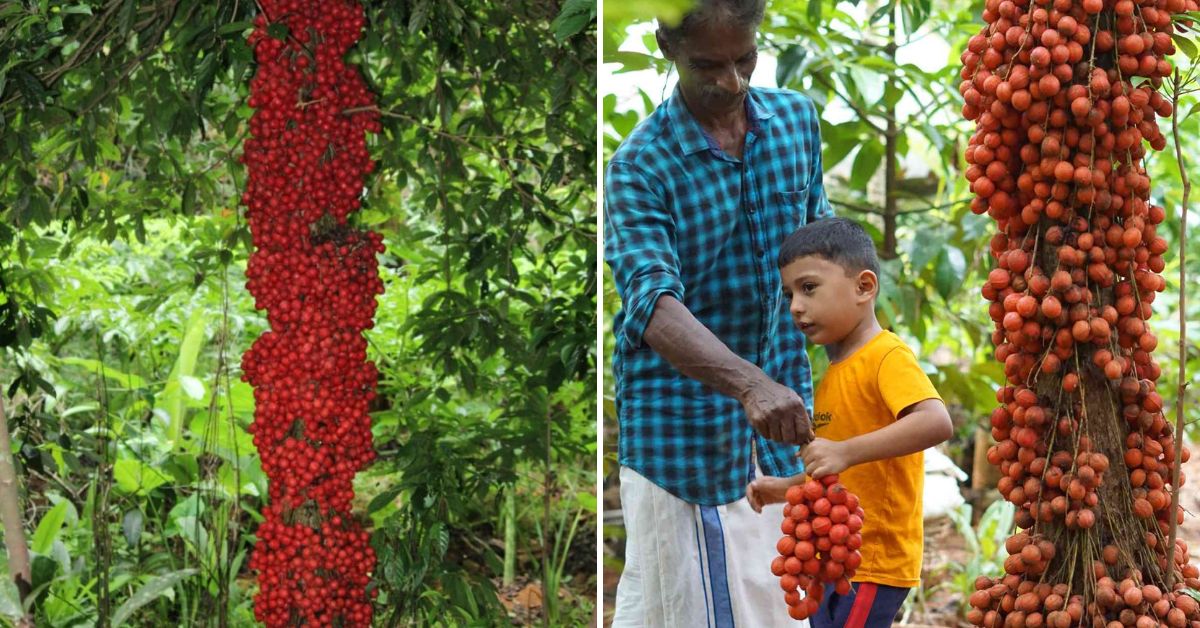
The 69-year-old, who later pursued agriculture, says that it was his brother Joy who first bought three saplings of Mooti Pazham from a tribal man and planted it on his land around 30 years ago.
Today, Baby grows around 250 trees of Mooti Pazham in his one acre of land around his house. Besides, he also grows its saplings and propagates them using techniques like budding and grafting, and earns around Rs 1 lakh annually from his sale of saplings.
Nurturing a wild fruit tree
The Mooti trees are mostly seen in the mountains of the Western Ghats. The name ‘Mooti’ literally translates to ‘below’ or ‘at the bottom’ and ‘Pazham’ means ‘fruit’.
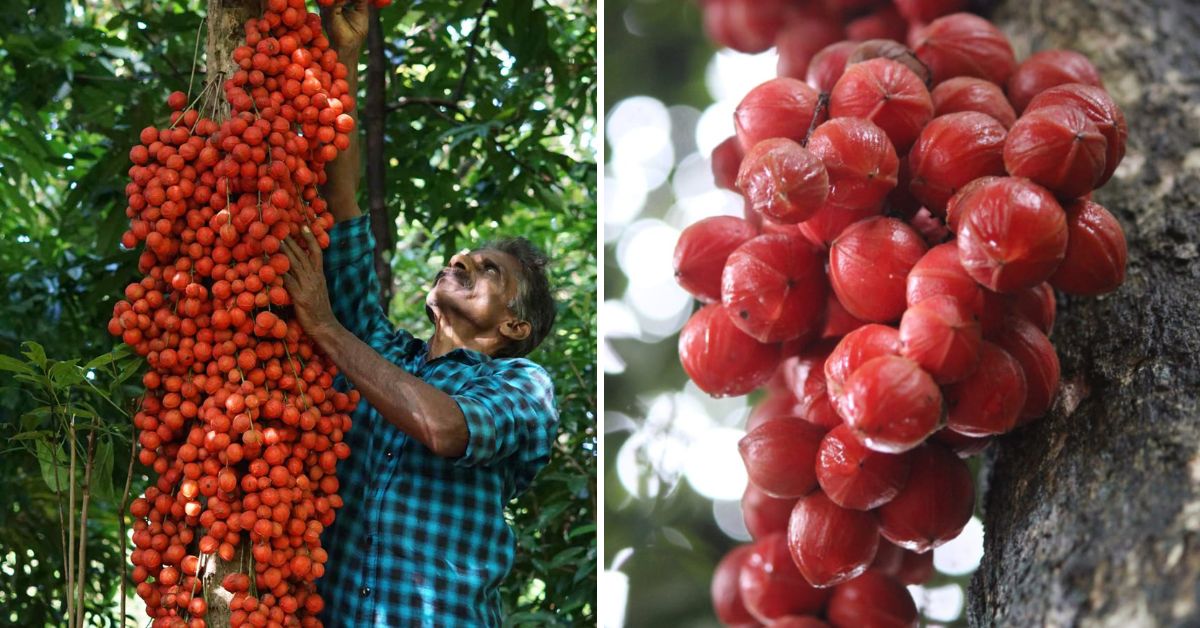
They are mostly spotted in the forest districts of Kerala such as Idukki, Pathanamthitta, Kollam, Thrissur, Kannur, and Kasaragod. Besides, they are also spotted in neighbouring states like Tamil Nadu and Karnataka as well.
The round-shaped fruit the size of a medium-sized gooseberry has a hard covering and pulpy content inside similar to a rambutan and three seeds inside.
Though the common variety of the fruit is red, there are also a few more varieties based on the colour and taste of the fruit. “The red coloured fruit is usually on the sweeter side, the rose coloured one is a bitter variety and the yellow variety is a mix of sweet and sour,” says Baby.
He recalls that one of the saplings brought by his brother bore fruits within four years after they were planted. “Thereafter it started bearing fruits every year. But back then I never had the thought of expanding it as a farming venture,” he says, adding, “Eventually, I started making a few saplings out of its seeds every year and distributed it to others who were interested.”
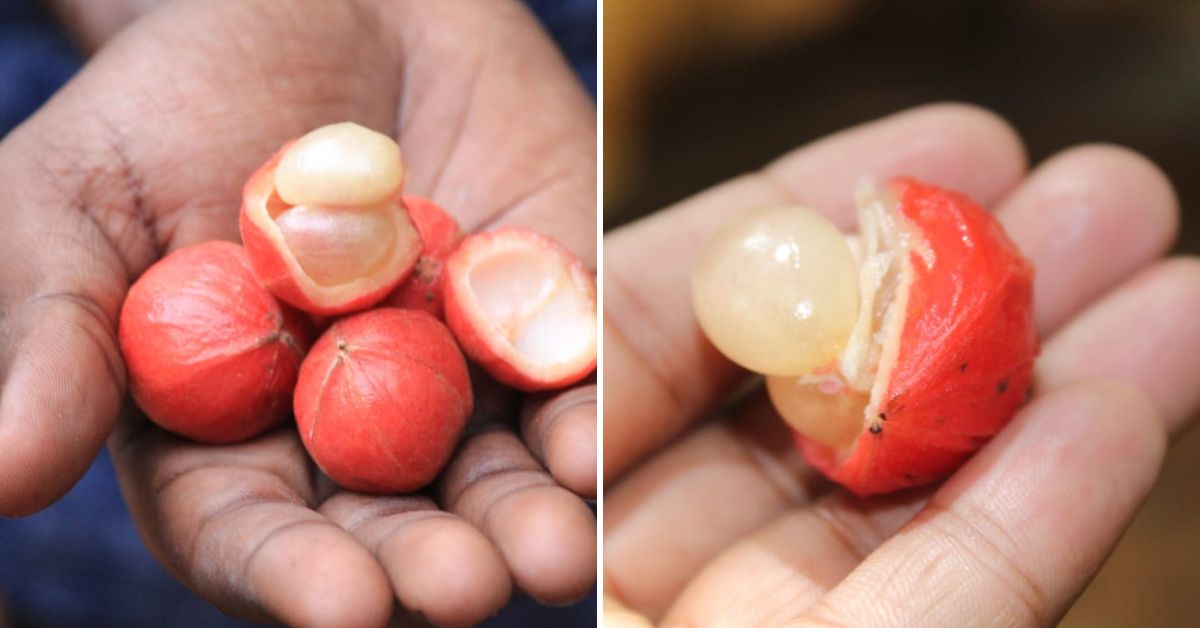
The practice, which continued for years, took a turn in 2018 when Baby propagated around 300 saplings. “I thought maybe I could sell it to some nurseries but unfortunately, it had very few takers that year. So, I decided to plant around 150 of them in my own land and that’s how it all began,” he points out.
The Mooti trees were planted across his one acres of land, where he also grows crops such as rubber, cacao, tapioca, turmeric, arrowroot, and several other fruit trees like mangosteen, lemon, rambutan and so on.
He says, “These trees would grow well in normal climatic conditions. It does not require too much sunlight or a lot of space to grow. Also, a fully grown tree would yield up to 50 kg of fruits.”
January and February are the flowering seasons of these trees that bear fruits usually in June and July.
For mooti trees to bear fruits, he says that it is important to have a male tree near the female tree, which would help with pollination. “If there is no male tree around, the female tree would still bear fruits but there will be no pulp inside the fruits,” says Baby, who sells the saplings as a packet that includes male and female saplings for Rs 250.
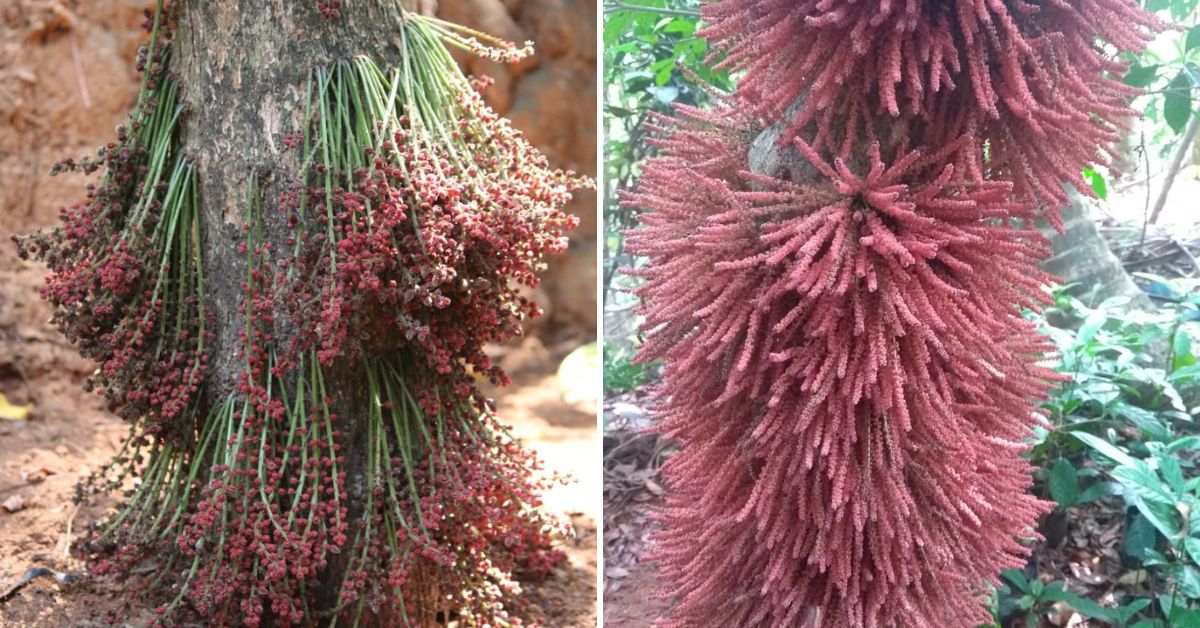
“I have been doing it for several years and now I can identify the gender of the tree just by observing its seeds,” he adds.
“The best part about these fruits is that they last for more than a month, even after plucking them. Although the pulp inside would shrink accordingly, you will be left with something to relish on, Even the husk or the hardcover can also be pickled,” he adds.
These fruits that are either consumed raw or as pickled, are also believed to have several health benefits. “There is ongoing research and studies for measuring its nutritional value and to understand its health benefits. There were a few preliminary studies that said that the fruits help in reducing cholesterol and blood pressure,” he explains.
Baby, who has been practising organic farming for years, says that he only applies organic manure for the trees, that too just twice a year. “It is also important to irrigate the trees frequently after they flower. So, in summers we make sure that we water them once in two or three days,” he adds.
Currently, he nurtures around 250 Mooti trees between the age group of two to 30 years and sells around 1,000 saplings a year. “Though there are a lot of inquiries for fruits, I haven’t started selling fruits commercially as I need to wait for a few more years to get the majority of the trees to bear fruits,” says Baby who now focuses on propagating quality saplings in his nursery.
For saplings, you can contact Baby Abraham at 8075910944
Edited by Yoshita Rao
If you found our stories insightful, informative, or even just enjoyable, we invite you to consider making a voluntary payment to support the work we do at The Better India. Your contribution helps us continue producing quality content that educates, inspires, and drives positive change.
Choose one of the payment options below for your contribution-
By paying for the stories you value, you directly contribute to sustaining our efforts focused on making a difference in the world. Together, let’s ensure that impactful stories continue to be told and shared, enriching lives and communities alike.
Thank you for your support. Here are some frequently asked questions you might find helpful to know why you are contributing?


This story made me
-
97
-
121
-
89
-
167

















